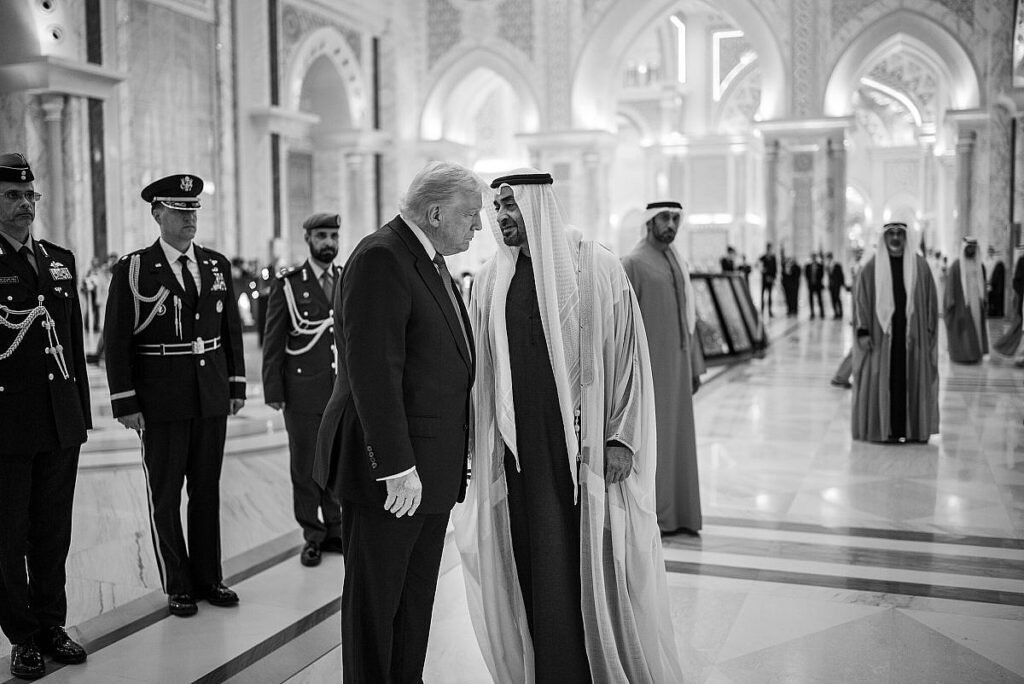In the ever-evolving chessboard of Middle Eastern geopolitics, one country’s loss can often be another’s opportunity. As Israel faces mounting diplomatic challenges and a sense of growing isolation in the region and beyond, the United Arab Emirates is quietly but confidently positioning itself to turn the situation to its advantage. In a region where alliances shift like desert sands, the UAE’s strategic foresight could potentially reshape its influence and standing in ways that few would have predicted a decade ago.
A Calculated Balancing Act
The United Arab Emirateshas long prided itself on maintaining a fine balance between regional solidarity and pragmatic diplomacy. The Abraham Accords of 2020 marked a bold step in normalizing relations with Israel, placing the Emirates in a unique category of Gulf states willing to publicly embrace economic and diplomatic ties with Tel Aviv. But while the Accords brought significant economic benefits and global praise, they also required the UAE to navigate an often uncomfortable position in relation to the Palestinian cause and broader Arab sentiment.

As Israel now finds itself increasingly isolated due to its ongoing conflict with Palestinians and strained relationships with several nations, the UAE sees an opportunity to subtly reassert itself as a key mediator, economic leader, and diplomatic bridge in the region.
Strengthening Its Role as a Regional Power Broker

The United Arab Emirates strategy has never been solely about making friends—it’s about influence. With Israel’s growing diplomatic woes, the Emirates can leverage its neutral stance to become a more indispensable mediator between the West, Israel, and Arab nations. By subtly distancing itself from some of Israel’s more controversial actions while maintaining the commercial and technological benefits of their bilateral relationship, the UAE can position itself as the region’s credible negotiator.
This positioning enhances its standing not only in the Middle East but also on the global stage. The ability to hold conversations with both sides of a conflict, while advancing its national interests, cements the UAE’s status as a pragmatic and forward-thinking state willing to take calculated risks for long-term influence.
Economic Openings Amid Diplomatic Gaps
Economic opportunity has always been a key motivator for the United Arab Emirates foreign policy decisions. As Israel faces increasing boycotts and trade restrictions from certain markets, Emirati businesses are uniquely placed to fill that gap. By acting as intermediaries or offering alternative markets for Israeli technology, defense equipment, and innovation, the UAE can secure profitable deals while keeping a diplomatic buffer between itself and any potential backlash.
Moreover, Israel’s reduced engagement with certain Arab countries means the UAE can claim a larger share of regional trade, investment, and partnerships. Sectors like renewable energy, cybersecurity, and agricultural technology are areas where the UAE is actively seeking to expand—and Israel’s isolation inadvertently opens new doors for these ambitions.

Winning Back Regional Sentiment
Public opinion across the Arab world has always been a sensitive issue for governments forging ties with Israel. The UAE, while publicly maintaining the Abraham Accords, has also been careful to express measured concern about humanitarian issues in Gaza and the West Bank. This dual approach allows the country to appease domestic and regional audiences while preserving its economic and strategic gains.
As Israel faces international criticism, the UAE has a chance to publicly align itself more closely with regional calls for peace, potentially reclaiming moral and political capital it may have lost in the eyes of Arab citizens. This repositioning could also ease tensions with neighboring states and provide the UAE with greater leverage in regional councils and alliances.
Boosting Soft Power and Global Reputation
The UAE has long invested in building a global brand that transcends its geographical size. From hosting world-class events like Expo 2020 to positioning itself as a hub for arts, culture, and cutting-edge technology, the country seeks influence through soft power as much as through diplomacy.
Israel’s growing isolation, especially in Western circles, presents the UAE with an opportunity to step in as a reliable, progressive, and open-minded partner. By promoting interfaith dialogues, humanitarian initiatives, and regional peacebuilding efforts, the UAE can further enhance its global image as a leader of moderation and modernity in a troubled region.
Managing Risks and Ensuring Stability
Of course, every opportunity comes with its risks. The UAE is acutely aware that overtly capitalizing on Israel’s diplomatic struggles could backfire if regional tensions escalate. Maintaining security and stability, both within its borders and in its immediate neighborhood, remains the country’s top priority.
To navigate this complex landscape, the UAE is likely to continue its policy of quiet diplomacy—making moves behind closed doors, building influence through economic partnerships, and avoiding public confrontations. This strategy has served the Emirates well in the past and allows it to adjust its position depending on how regional dynamics evolve.
Forging New Alliances and Expanding Influence
Another key opportunity for the UAE lies in forging stronger ties with other regional players who share concerns about Israel’s recent actions. Countries like Egypt, Jordan, and even Turkey have expressed varying degrees of unease over the situation. The UAE can leverage these sentiments to build new diplomatic coalitions and enhance its leadership role in shaping the future of Middle Eastern cooperation.
In addition, the shifting alliances may enable the UAE to increase its influence in international forums such as the Arab League, the Organisation of Islamic Cooperation (OIC), and even the United Nations. By taking a principled yet pragmatic stance, the country can rally support for regional initiatives that align with its long-term security and economic goals.
A New Chapter in Middle Eastern Diplomacy
The Middle East is no stranger to rapid change, and Israel’s current diplomatic challenges are unlikely to be the last major shift the region witnesses. For the UAE, this is a moment to recalibrate its strategy, expand its influence, and reinforce its position as a modern, forward-thinking nation capable of balancing tradition with progress.
The coming months will reveal how the UAE chooses to navigate this delicate situation. What’s clear is that it has both the ambition and the capacity to turn regional instability into strategic advantage. By carefully managing its relationship with Israel, while championing regional peace and opportunity, the UAE stands poised to shape a new chapter in Middle Eastern diplomacy—one where it holds a seat at every major negotiating table.

Conclusion: A Future Built on Vision and Pragmatism
In a region where history often repeats itself, the UAE has consistently demonstrated a unique ability to adapt, evolve, and seize opportunities others may overlook. Israel’s growing isolation presents one such opening, and the Emirates are moving with quiet confidence to turn a potential crisis into an avenue for influence, economic gain, and renewed regional leadership.
Whether through economic partnerships, diplomatic brokering, or soft power initiatives, the UAE’s long-term vision remains focused on stability, prosperity, and maintaining a prominent role on the global stage. And as the region watches closely, it’s evident that the Emirates are not merely reacting to events—they are shaping them.
Do follow UAE Stories on Instagram
News9 Global Summit UAE 2025 Concludes in Dubai, Focuses on India–UAE Ties














